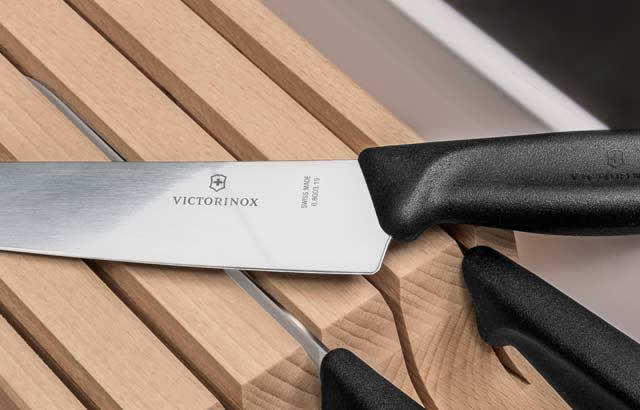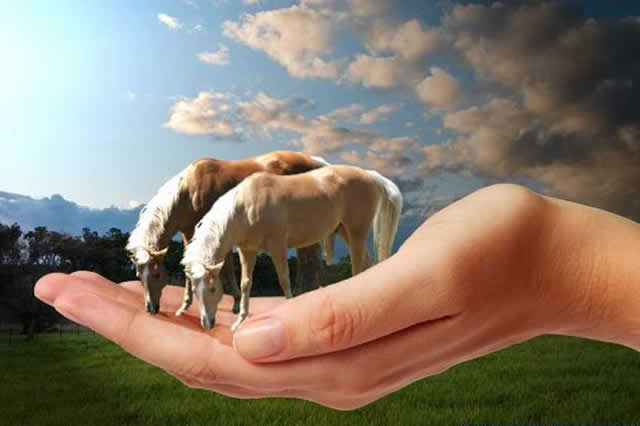Inglês Online
NOT THE SHARPEST KNIFE IN THE DRAWER em inglês, o que significa?

Não é o mais inteligente do grupo em inglês: Not the sharpest knife in the drawer | Not the sharpest tool in the shed (or box)
“Not the sharpest knife in the drawer, not the sharpest tool in the shed (or box)” significam não é o mais inteligente em inglês. Ou seja, é um modo de dizer que não é a pessoa mais esperta do grupo. É uma pessoa tapada, mas é a que está à disposição.
What do “not the sharpest knife in the drawer, not the sharpest tool in the shed (or box)” mean?
“Not the sharpest knife in the drawer, not the sharpest tool in the shed (or box)” are idiom. The definition or meaning is “used only for comparison, to imply that a person is either insane or unintelligent; lacking intelligence; stupid”. Another meaning would be “someone who is not very clever, according to others; not intelligent; slightly (or a lot) behind the rest at getting a joke”. See some examples with Portuguese translation.
How do you say “not the sharpest knife in the drawer, not the sharpest tool in the shed (or box)” in Portuguese?
- I knew she wasn’t the sharpest tool in the shed, but honestly – I didn’t know she was THAT dense!. / Eu sabia que ela não era a mais esperta da turma, mas honestamente – eu não sabia que ela era burra assim!
- My brother’s not the sharpest tool in the shed. I think he might have been dropped on his head as a baby. / O meu irmão é tapado. Eu acho que ele pode ter caído de cabeça quando bebê.
- I admit I’m not the sharpest tool in the shed – but at least give me the benefit of the doubt and let me enter the quiz. / Eu admito que não sou o mais esperto de todos – mas, pelo menos, me dê o benefício da dúvida e deixe-me participar do questionário.
- I know he’s good-looking, but he’s not exactly the sharpest knife in the drawer, is he? / Eu sei que ele é bonito mas, não é exatamente não é o mais inteligente do grupo, não é?.
- Although he’s a cutie, he’s not the sharpest tool in the shed! / Embora ele seja uma gracinha, ele não é o mais inteligente do grupo!
- When I’ve seen her on TV she seems nice enough but definitely not the sharpest knife in the drawer. / Quando a vi na TV, ela parece ser bem legal, mas definitivamente não é a mais esperta da turma.
- She’s not the sharpest knife in the drawer, but she isn’t dishonest. / Ela não é a mais esperta, mas não é desonesta.
Inglês Online
HOLD ONE’S HORSES em inglês, o que significa?

Ir com calma em inglês: To hold one’s horses
“To hold one’s horses” significa ir com calma em inglês. Ou seja, segurar a onda. Ter paciência, esperar por um momento.
“Hold one’s horses” significa literalmente segurar os cavalos em inglês. O cavalo é um animal que reage à maioria das situações por correr. Portanto, por extensão usa-se essa expressão geralmente no imperativo para alguém que tem o ímpeto de reagir de determinada maneira. Pra que ela se acalme, seja paciente e segure o ímpeto. “Espera aí!”, “Peraí!”, “Calma aí!”
What does “to hold one’s horses” mean?
“To hold one’s horses” is an idiom. The definition or meaning is “to slow down or stop for a moment ― usually used in the imperative; used to tell someone to stop and consider carefully their decision or opinion about something”. Another meaning would be “to wait up; to relax and slow down; to be patient; to wait a moment”. See some examples with Portuguese translation.
How do you say “to hold one’s horses” in Portuguese?
- Hold your horses! / Vai com calma! | Segura a sua onda!
- She told me to hold my horses. / Ela me disse pra eu segurar a minha onda.
- If she holds her horses I will tell her the solution. / Se ela for com calma eu lhe contarei como resolver.
- Ok, ok, hold your horses, you just finished a big game, you should be tired. / Tá bom, tá bom, peraí, você acabou de sair de um grande jogo, deve estar cansado.
- Just hold your horses, John! Let’s think about this for a moment. / Vai com calma, João! Vamos pensar mais um pouco.
- Now, just hold your horses and let me explain. / Agora, fique calmo e deixe-me explicar.
Inglês Online
DOS MALES, O MENOR em inglês, como se diz?

Dos males o menor em inglês: Better the devil you know | The lesser of two evils
“Better the devil you know, the lesser of two evils (BrE)” significam dos males, o menor em inglês. Ou seja, entre escolher duas coisas ruins; escolha a menos ruim das duas. Se todas as possibilidades disponíveis são desagradáveis ou desfavoráveis; procure escolher a que prejudique menos.
“Better the devil you know than the devil you don’t know” é um provérbio popular que traduzido significa “melhor o diabo (ou o mal) que você conhece do que o diabo (mal) que você não conhece”. O provérbio quer dizer que é mais sábio lidar com uma pessoa ou situação ruim mas familiar, do que arriscar a mudar; o que poderia levar a uma situação ainda pior.
What do “better the devil you know, the lesser of two evils” mean?
“Better the devil you know; the lesser of two evils” are informal expressions. The definition or meaning is ” it’s wiser to deal with an undesirable but familiar person or situation than to risk a change that might lead to a situation with worse difficulties; the less unpleasant of two choices, neither of which is good; of two evils choose the least”. Another meaning would be “the less unpleasant or harmful of two possible choices; the less bad of two bad things”. See some examples with Portuguese translation.
How do you say “better the devil you know, the lesser of two evils” in Portuguese?
- I hesitated to call John after he had been so difficult last time, but better the devil you know. / Eu hesitei em chamar o João depois dos problemas que ele causou da última vez, mas dos males, o menor.
- Any other man might be as unpleasant to live with — better the devil you know. / Qualquer outro homem poderia ser mais agradável de se conviver – mas dos males, o menor.
- Let’s use the same mechanic as last time. It’s better the devil you know. / Vamos usar o mesmo mecânico da última vez, dos males, o menor.
- I suppose I regard the Democratic candidate as the lesser of two evils. / Suponho que considere o candidato democrata é dos males, o menor.
- He’s convinced the voters that he is the lesser of two evils. / Ele convenceu os eleitores de que ele é dos males, o menor.
- But allowing a criminal to go free is perhaps the lesser of two evils if the alternative is imprisoning an innocent person. / Mas permitir que um criminoso se livre seja talvez dos males, o menor se a alternativa for encarcerar uma pessoa inocente.
Inglês Online
O que significa “money burning a hole in a pocket” em inglês?

Dinheiro na mão é vendaval em inglês: Money burning a hole in one’s pocket
“Money burning a hole in one’s pocket” significa dinheiro na mão é vendaval em inglês. Ou seja, quer dizer ficar impaciente ou ansioso para gastar logo o dinheiro. De fato, dinheiro disponível fazem as pessoas quererem gastar. Portanto, não raro as pessoas ficam em dificuldade financeira porque dinheiro na mão (dela) é vendaval. Conhece alguém assim?
What does “money burning a hole in one’s pocket” mean?
“Money burning a hole in one’s pocket” is a proverb. The definition or meaning is “available money makes people want to spend it”. Another meaning would be “someone who spends money as soon as it is earned; one can’t keep from spending whatever money one has”.
How do you say “money burning a hole in one’s pocket” in Portuguese?
- If money burns a hole in your pocket, you never have any for emergencies. / Se você não consegue ficar sem gastar dinheiro, você nunca vai ter algum dinheiro para emergência.
- I had a fifty dollar bill that was burning a hole in my pocket, so I figured I’d go out and have a really good time. / Eu tinha uma nota de cinquenta dólares no bolso doidinha para ser gasta, então dei um jeito de sair e me divertir.
- The day I got my allowance, I hurried down to the sporting goods store, the money burning a hole in my pocket. / O dia que eu recebi minha mesada, corri pra loja de artigos esportivos, estava ansioso pra gastar.
- If money burns a hole in your pocket, you may need to take a course in managing money. / Se você não consegue ficar sem gastar, você precisa fazer um curso de gestão financeira.
- At Christmas he didn’t have much money for a Christmas presents because money burns a hole in his pocket. / No Natal ele não tinha muito dinheiro para os presentes porque dinheiro na mão dele é vendaval.






















